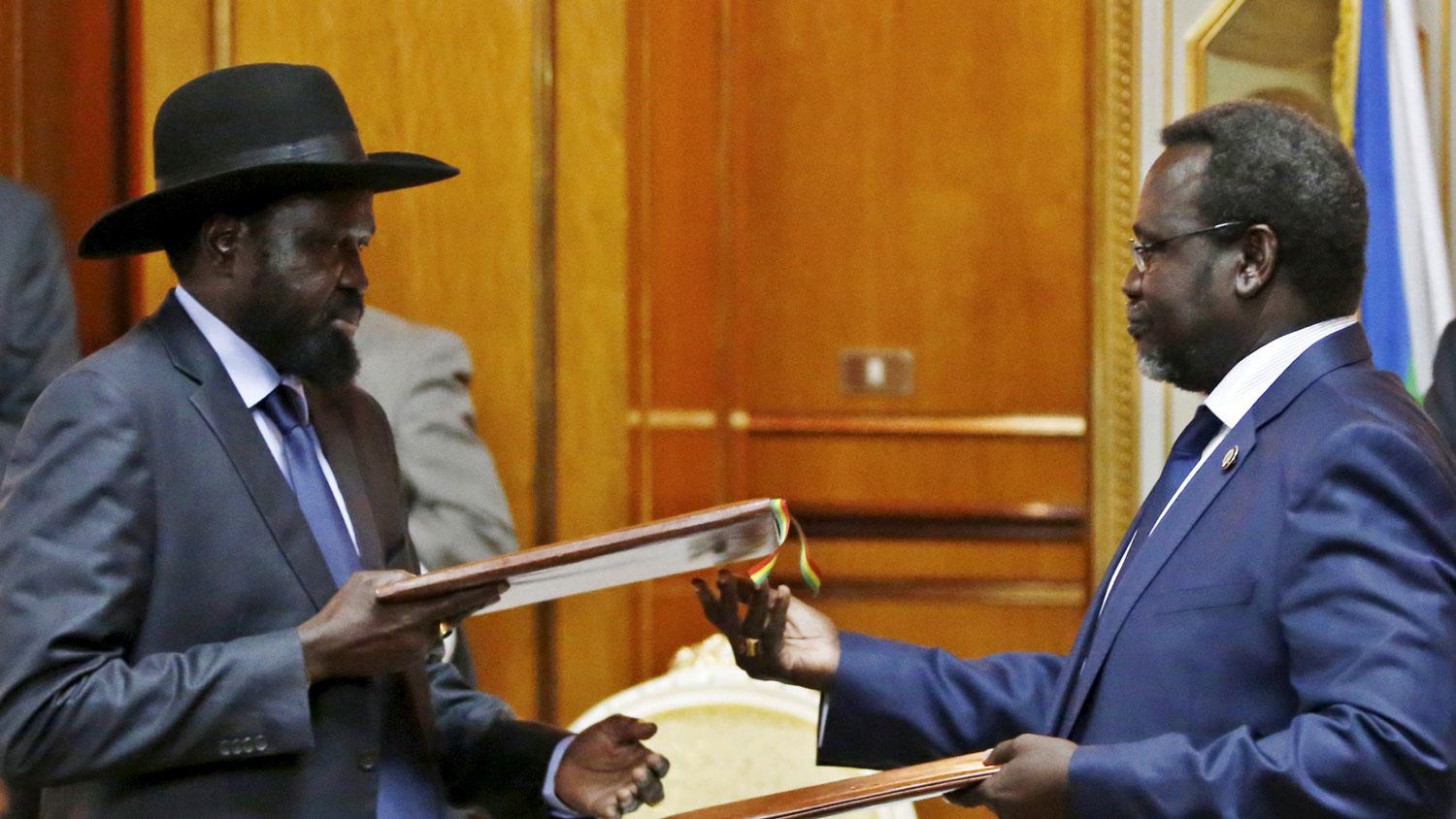South Sudan president calls for ‘national dialogue’ to end civil war
South Sudan's rebel leader Riek Machar, right, and South Sudan's President Salva Kiir, exchange signed peace agreement documents in Addis Ababa in May 2014.
Kiir, whose wrangling for power with his former deputy Riek Machar plunged the world's newest nation into a brutal, destructive and ongoing civil war in December 2013, gave a speech to parliament calling for a "national dialogue."
Kiir said a panel of "eminent personalities and people of consensus" would guide the national dialogue which would involve "all the people of South Sudan" but did not say who the panel members would be.
The ambitious aims of the initiative, he said, are to "save the country from disintegration and usher in a new era of peace, stability and prosperity."
"As long as I am your president, I will not allow the suffering of our people to continue and I will not also allow this country to fall apart," Kiir said.
Kiir's troops and allied militia have been accused of ethnic massacres, rape and sexual slavery, looting, pillage and the forced recruitment of child soldiers. Rebels have perpetrated similar crimes.
In recent weeks fresh ethnic killings — most allegedly carried out by Kiir's forces — in and around the southern town of Yei have triggered genocide warnings from the UN.
In his speech, Kiir asked forgiveness "for any mistakes I might have committed" but did not specify what they might be.
Neither was there any mention of justice for crimes committed, nor of his arch enemy Machar, who is currently in exile in South Africa after being chased from the country during battles that raged in the capital Juba in July.
Nevertheless, Kiir issued a directive to both government and rebel forces "to immediately cease hostilities, protect their fellow citizens and prepare the ground for a more peaceful, secure and joyous Christmas and New Year."
Kiir's call comes at the start of the traditional fighting season, after the rains have stopped, and on the eve of the civil war's third anniversary.
In Geneva, the UN human rights council held a special session on South Sudan on Wednesday, passing a resolution that called on Kiir's government to put an end to widespread atrocities and bring the perpetrators of past violations to justice.
The head of the UN's human rights commission for South Sudan, Yasmin Sooka, also reissued her warning that the country risked plunging into a crisis similar to the 1994 Genocide in Rwanda.
"South Sudan stands on the brink of an all-out ethnic civil war, which could destabilize the entire region," she told the council.
Every day, reporters and producers at The World are hard at work bringing you human-centered news from across the globe. But we can’t do it without you. We need your support to ensure we can continue this work for another year.
Make a gift today, and you’ll help us unlock a matching gift of $67,000!
